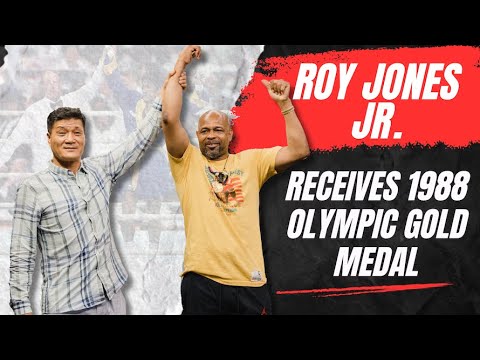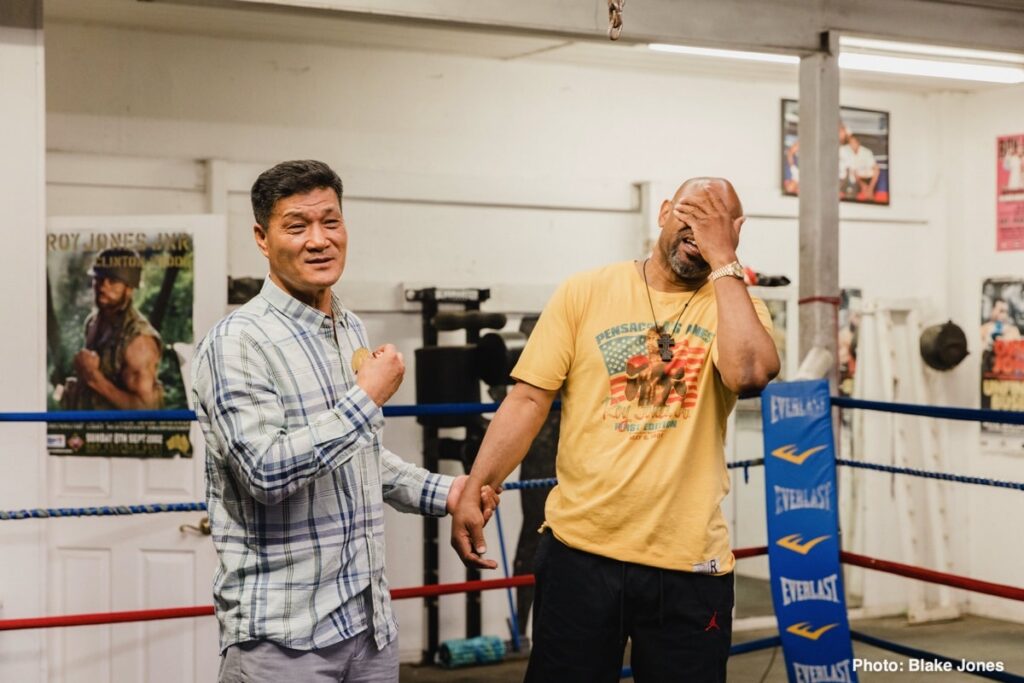In May 2023, history circled back. Park Si Hun, the man controversially awarded Olympic gold over Roy Jones Jr. in Seoul 1988, turned up at Jones’s Pensacola ranch with the medal in hand. Thirty-five years later, he handed it back, admitting what the entire world already knew: “I had the gold medal, but I wanted to give it back to you. It belongs to you.”
The moment was surreal. Families gathered, cameras rolling, and Park – with a nervous laugh – added: “This gold medal is your problem now.” For Jones, who’d long buried the Olympic robbery under layers of pride and legendary wins, it was a reckoning. For Park, who lived haunted, it was a release.
The Night Olympic Boxing Sold Its Soul
Seoul 1988 was one of the dirtiest nights in amateur boxing. Roy Jones Jr. humiliated Park, outlanding him 86 punches to 32, yet three blind or bent judges handed the South Korean the decision. The score was 3-2, a split verdict so rotten it stank across the globe.
Jones walked away with the Val Barker Trophy for “best stylistic boxer of the Games,” but not the medal that should’ve been around his neck. Years later, Olympic officials admitted corruption, with whispers of political deals and national pressure. The IOC quietly overhauled amateur scoring after the scandal – but they never reversed the decision. They let the robbery stand.
Jones said later he vowed never to let judges rob him again: “That day taught me one thing – take the judges out of it. Knock ‘em out, leave no doubt.” And he lived by it. From junior middleweight to heavyweight champion, he forged a career that proved his dominance was no fluke.
Park’s Burden – Depression, Shame, and a Medal He Never Wanted
Park didn’t get away untouched. He apologized to Jones straight after the fight, admitting the decision was wrong. But in South Korea, he was no hero. He became a scapegoat, vilified by his own country, battling depression, suicide attempts, and decades of guilt.
In a three-hour sit-down after returning the medal, Park admitted: “I never wanted it. It destroyed me.” Those aren’t the words of a champion – they’re the words of a man carrying someone else’s crime. His trip to Pensacola was a way of cutting loose from that weight.
Jones, caught off guard by Park’s arrival, admitted the shock hit him hard: “I thought I was coming for an interview. I didn’t know I was coming to make peace with my past.” Now, with the medal in his possession, Jones is talking documentary – not just about the theft, but about legacy, resilience, and how you live after injustice.
MY TAKE
Let’s call this what it is: Olympic boxing sold Roy Jones Jr. down the river in ’88. The judges were bent, the officials were gutless, and the IOC never had the backbone to right the wrong. They changed the scoring system but left the biggest injustice to rot on the books. That’s corruption dressed up as reform.
Park giving the medal back is emotional, no doubt. But let’s not pretend it wipes the slate clean. The damage was done. Jones was robbed on the biggest stage, and Park was ruined in the aftermath. Both men lost in different ways.
And the IOC? They skated free. No accountability, no apology, no official reversal. Just bureaucrats hiding behind their rules while two fighters lived the consequences. That’s the real scandal.
If Jones makes that documentary, I hope he tears into the Olympic suits who let it slide. Because this wasn’t just a bad decision – it was Olympic boxing showing the world it was rotten to the core.

Last Updated on 09/04/2025
Read the full article here

